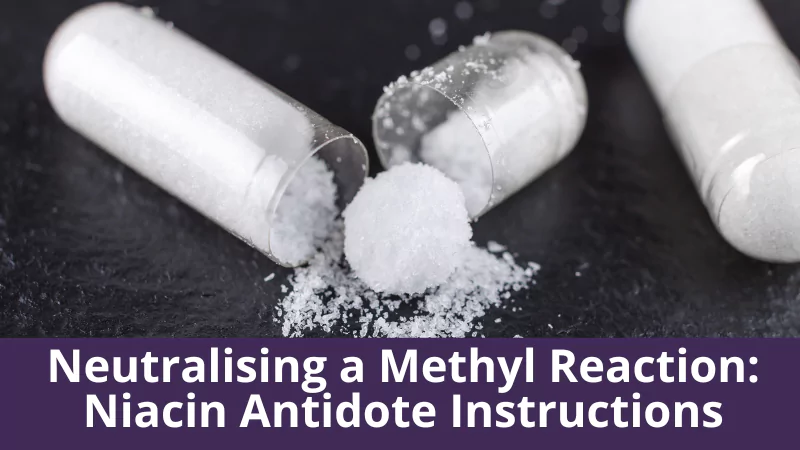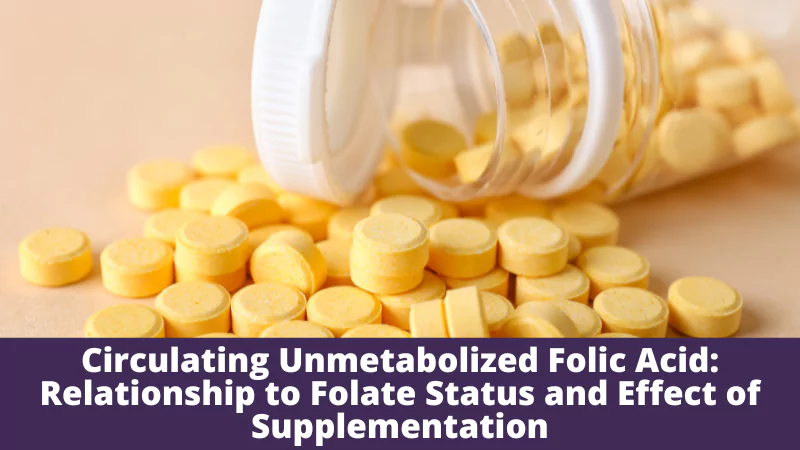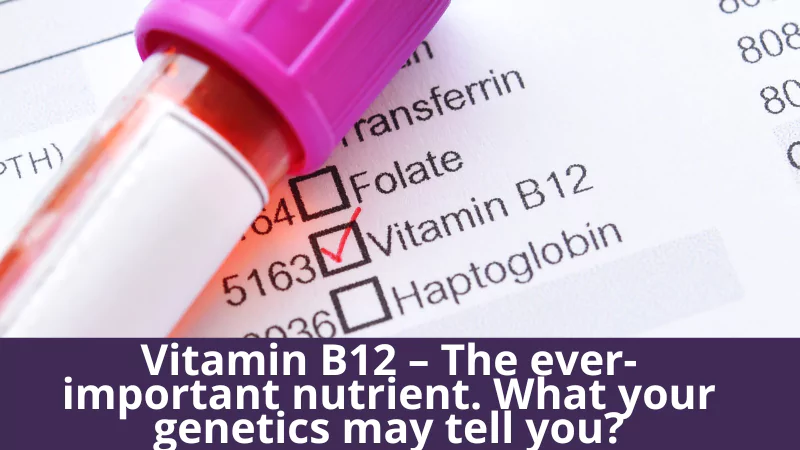When supplementing with methylated supplements (e.g. methylfolate or methylcobalamin) there is potential to react to them.
A reaction to methylated products can be for several reasons, the most common being:
- Further genetic mutations that impact the passage or metabolism of methyl products in the body, thereby leading to a ‘block’ and build up of methyls.
- Inflammation present in the body that needs to be addressed prior to supplementing with methyl’s, so the body is not as sensitive or reactive.
- Under functioning systems of elimination (e.g. poor gut health, liver, kidney, lymphatic or skin issues) that cannot yet handle the increase in methylation and detoxification that occurs with methyl supplementation.
- COMT ++ mutations that stop the breakdown of dopamine and therefore taking methyls will increase dopamine levels and affect anxiety and mood.
>>> Check this Webinar: Genes That Impact Your Folate, B12 and Methylation & How To Support Them
It is important to remember that side effects can either develop immediately/ quickly after taking methylated products, or can also slowly develop over days or weeks after taking them. If you are beginning supplementation with methyl’s for the first time be aware of any changes to your health similar to those below.
Methyl donors may include:
- Methylfolate
- Methylcobalamin (B12)
- Turmeric
- Caffeine
- MSM
- Melatonin
- CoQ10
- Carnitine
- Quercetin
- DMG (Dimethylglycine)
- TMG (trimethylglycine)
- SAMe
- Green juices/ powders
- Theanine
FREE Download What is MTHFR eBook
Signs of reacting to methylated supplements include:
- Headache
- Migraine
- Irritability
- Joint pain
- Lethargy
- Fatigue
- Striped rashes
- Eczema
- Sharp, sudden or gradual decrease in mood e.g. low thoughts or onset or depression – may even be suicidal
- Muscle aches and pains
- Nausea
- Insomnia
- Anxiety
- Over revved feeling
- Seizures
- Vomiting
- Sweating
- Hypokalemia
- Palpitations
- Locked jaw type feeling
If you do begin to experience these side effects, there is an easy and fast acting antidote that will neutralise these effects within several to 24 hours – Niacin (Vitamin B3).
Niacin is a fast acting antidote to methyls as it binds to methyl groups, leaving them unavailable to the body.
Link to Purchase Niacin:
If you know that your body is sensitive to supplementation, new dosage regimes or you would simply like to be well prepared for any potential reaction, we strongly recommend sourcing some Niacin before you begin any new methylated products, so you may have some on hand for rapid use, should a reaction occur.
Dosing instructions and steps for neutralising a methyl reaction:
- Cease taking all methyl containing products immediately
- Supplement with 50mg of niacin every 1 -2 hours until all symptoms subside. For some people this is only a couple of hours. For others it may take a couple of days. If the reaction is very bad then you may want to take 2 tablets every hour. After meals is ideal but not essential as you may flush.
- Do not be alarmed or worried if you experience a “Niacin Flush”. As niacin is also used in cardiovascular health, it can have a harmless effect of flushing the skin red for several minutes in the face, neck, torso and arms. Again while this can be an odd sensation, it is simply blood rising to the surface of the skin, and causes no harm to be body.
- Take a break from supplementing with methylated products for several days to a week, before starting again at a lower dose if you wish to continue. If the methylfolate affected your mood greatly, then do not try methyls again until you speak to your practitioner.
- If you are going to retry the methyls, go to the dose you had BEFORE you had your symptoms and say on that level much longer or until you speak to your practitioner. Test your threshold, and stay at what level of supplementation your body can handle. For example, if you find your body can tolerate 200mcg of methylfolate per day before it begins to over-methylate, then stay on this dose and do not worry about increasing it. This is the right dose for you and your body at this point in time.
- Cease taking methyls and consider booking an appointment with your health practitioner or MTHFR Support Australia if you continue to react to methylated products even at small doses, and we will create a plan to support you based on your health, symptoms and genetic presentation.
- Contact us at mthfrsupport.com.au or info@mthfrsupport.com.au Tel: +612 9908 1888









